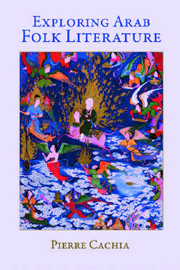Book contents
- Frontmatter
- Contents
- Acknowledgements
- Dedication
- Foreword by Professor Clive Holes
- Introduction
- The Transcription of Both Classical and Colloquial Arabic
- Part 1 Fact Finding
- Part 2 Single or Related Items
- Part 3 Cultural and Social Implications
- 14 Two Perspectives on the ‘Other’ in Arabic Literature
- 15 Maltese: Arabic Roots and Sundry Grafts
- 16 Social Values Reflected in Egyptian Popular Ballads Studies in Modern Arabic Literature, ed. R. C. Ostle (London, 1975)
- 17 Folk Themes in the Works of Najīb Surūr Arabic and Middle Eastern Literatures, 3, 2 (July 2000)
15 - Maltese: Arabic Roots and Sundry Grafts
from Part 3 - Cultural and Social Implications
Published online by Cambridge University Press: 05 February 2015
- Frontmatter
- Contents
- Acknowledgements
- Dedication
- Foreword by Professor Clive Holes
- Introduction
- The Transcription of Both Classical and Colloquial Arabic
- Part 1 Fact Finding
- Part 2 Single or Related Items
- Part 3 Cultural and Social Implications
- 14 Two Perspectives on the ‘Other’ in Arabic Literature
- 15 Maltese: Arabic Roots and Sundry Grafts
- 16 Social Values Reflected in Egyptian Popular Ballads Studies in Modern Arabic Literature, ed. R. C. Ostle (London, 1975)
- 17 Folk Themes in the Works of Najīb Surūr Arabic and Middle Eastern Literatures, 3, 2 (July 2000)
Summary
Cultural Cross-currents in Maltese Idioms
The vicissitudes of history that made Malta part of the Aghlabid domains for more than 200 years, then for even longer centuries the battered but unconquered bastion of Christendom against Islam, have left it a strangely mixed inheritance. On the one hand, its language has obvious, close and today widely acknowledged bonds of kinship with Arabic. On the other hand, not only is there among the common people a conscious antipathy to the Arabs which makes the very word għarbi a term of abuse, but almost every manifestation of Maltese cultural life other than the language places it clearly in the stream of European, more specifically Italian, civilisation.
This European affiliation is not merely a veneer taken on by the educated classes, nor is it entirely the result of that penetration of the Near East by the West which began in the nineteenth century and has coloured the life of the Arabs themselves.
It is, of course, most patent in the Maltese literary movement, in that its pioneers were men steeped in the Italian literary tradition, in several instances men with a reputation as writers in Italian before they turned to the native idiom. But Maltese folk literature, too, although not so homogeneous, betrays profound and longstanding European influences. The folktales, for example, are strongly reminiscent of the Arab ḥadduħah, with its characteristically luxuriant fantasy – although even in these there are curiously revealing twists, as when the role which in Arab tales is usually filled by a Persian ḥakīm or a Maghribī magician is, in its Maltese counterpart, assigned to a German professor.
- Type
- Chapter
- Information
- Exploring Arab Folk Literature , pp. 178 - 190Publisher: Edinburgh University PressPrint publication year: 2011



